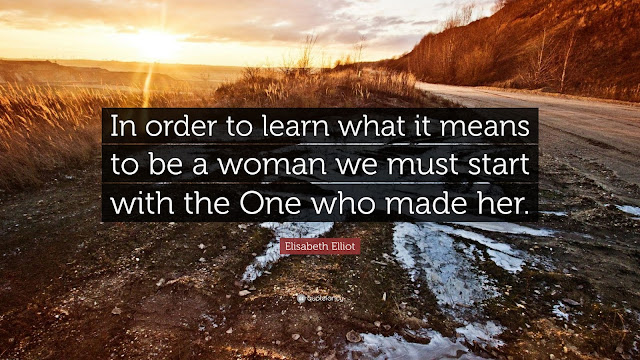Being an Esther
"She is clothed in strength and dignity, and she laughs at the time to come. She opens her mouth with wisdom, and the teaching of kindness is on her tongue."
-Proverbs 31:25-26
As a woman, this passage from Proverbs is both convicting and encouraging. It is a reminder of who I am meant to be as a daughter of the King. It reminds me that God is not done with me yet, he is still changing me and making me more like him. I am not perfect, I certainly don't have everything figured out or put together. I am not writing this because I've somehow cracked the mystery of life, but because I want to share the incredible lessons I've learned from others about our Creator's character and the intricate way he designed each of us. I also want to stress that we are not imperfect because of a flaw in the Creator, or His plan, but because of our sin, that He graciously rescues us from, thoroughly dealing with our pasts and making us new.
While we are human and therefore imperfect, our God is not. Throughout the Bible, God uses ordinary people to display his character. For example, despite the world's claims that God is misogynistic, He uses women in powerful ways. The bible illustrates the stories of Esther, Rahab, Hannah, Noami, Ruth, and Deborah, and those are just a few of the strong, independent women described in the Old Testament alone. If you've never studied the stories of these incredible women, I highly suggest you do. These women come from a variety of backgrounds, Ruth was a gentile who came to love God because of the extraordinary faith of her mother-in-law, Naomi. Rahab was a prostitute and yet one of Jesus' ancestors. If God, or if you are so inclined to not believe in Him, the authors of the bible, were misogynistic, judgmental, or hypocritical, Rahab would certainly not be included in Jesus' family line (Matthew 1:5). Who, fun fact, was Boaz's mother, also known as Ruth's other mother-in-law.
One of my favorite testimonies of the Bible is the story of Esther, a woman chosen "for such a time as this." While the name of God is never mentioned in the book of Esther, his handiwork is evident in every circumstance as He enables her to save a nation, His chosen people. Isn't it just like that in our own lives? We might not be able to physically see God, but He is constantly bringing everything together for good and His glory.
Esther embodied what it means to be a true woman of God. She balanced submission to her husband, King Xerxes, and submission and obedience to God. The manner in which Esther put this into practice is best seen in Esther 5:1-8 and 7:1-10. Esther was both respectful of her husband, honoring him and his position, while at the same time being obedient to God and loyal to her people. God, because of her obedience, provided her the strength and wisdom she needed to take on Haman, a man who sought to destroy her people.
This idea of submission to men is an area of struggle for many women, probably due in part to pride, as well as the hurt of injustices suffered. Both men and women have failed in upholding the standards and roles given to us by our Creator. However, when we each chase after God, we are truly able to fulfill our potential. Submission of a woman and leadership of a man is less about pride and more about love and self-sacrifice. It is saying that I care more for God's will, and I care more about this other person's needs and desires over my own. It is a mutual submission, each of us to God and his authority, women to men's authority, and men, in their submission to God, will provide for their wives and children. A friend of mine recently explained submission to me this way, just because Jesus submits to the Father's will (such as when he died on the Cross for us), does not make them unequal.
In the same way, to be a biblical woman does not mean we must be weak or subservient. We are strong, we are independent, but we were also created to fulfill a purpose. Our purpose is not the same as a man's. We are different and unique for a reason. There are things I can accomplish that my brothers, my father, or my guy friends cannot. Just as there are things they can accomplish that I cannot. Isn't that the neat thing about it though? We were created to be in community, to rely on each other. If we could do everything in our own strength, what would happen to the body of christ full of many parts that we were created to be a part of (1 Corinthians 12:12)?
My final challenge for women is best said by my hero, Elisabeth Elliot, "To me, a lady is not frilly, flouncy, flippant, frivolous and fluff-brained, but she is gentle, she is gracious, she is godly, and she is giving. You and I have the gift of feminity... the more womanly we are, the more manly men will be and the more God is glorified. Be women. Be only women, be real women in obedience to God."
While we are human and therefore imperfect, our God is not. Throughout the Bible, God uses ordinary people to display his character. For example, despite the world's claims that God is misogynistic, He uses women in powerful ways. The bible illustrates the stories of Esther, Rahab, Hannah, Noami, Ruth, and Deborah, and those are just a few of the strong, independent women described in the Old Testament alone. If you've never studied the stories of these incredible women, I highly suggest you do. These women come from a variety of backgrounds, Ruth was a gentile who came to love God because of the extraordinary faith of her mother-in-law, Naomi. Rahab was a prostitute and yet one of Jesus' ancestors. If God, or if you are so inclined to not believe in Him, the authors of the bible, were misogynistic, judgmental, or hypocritical, Rahab would certainly not be included in Jesus' family line (Matthew 1:5). Who, fun fact, was Boaz's mother, also known as Ruth's other mother-in-law.
One of my favorite testimonies of the Bible is the story of Esther, a woman chosen "for such a time as this." While the name of God is never mentioned in the book of Esther, his handiwork is evident in every circumstance as He enables her to save a nation, His chosen people. Isn't it just like that in our own lives? We might not be able to physically see God, but He is constantly bringing everything together for good and His glory.
Esther embodied what it means to be a true woman of God. She balanced submission to her husband, King Xerxes, and submission and obedience to God. The manner in which Esther put this into practice is best seen in Esther 5:1-8 and 7:1-10. Esther was both respectful of her husband, honoring him and his position, while at the same time being obedient to God and loyal to her people. God, because of her obedience, provided her the strength and wisdom she needed to take on Haman, a man who sought to destroy her people.
This idea of submission to men is an area of struggle for many women, probably due in part to pride, as well as the hurt of injustices suffered. Both men and women have failed in upholding the standards and roles given to us by our Creator. However, when we each chase after God, we are truly able to fulfill our potential. Submission of a woman and leadership of a man is less about pride and more about love and self-sacrifice. It is saying that I care more for God's will, and I care more about this other person's needs and desires over my own. It is a mutual submission, each of us to God and his authority, women to men's authority, and men, in their submission to God, will provide for their wives and children. A friend of mine recently explained submission to me this way, just because Jesus submits to the Father's will (such as when he died on the Cross for us), does not make them unequal.
In the same way, to be a biblical woman does not mean we must be weak or subservient. We are strong, we are independent, but we were also created to fulfill a purpose. Our purpose is not the same as a man's. We are different and unique for a reason. There are things I can accomplish that my brothers, my father, or my guy friends cannot. Just as there are things they can accomplish that I cannot. Isn't that the neat thing about it though? We were created to be in community, to rely on each other. If we could do everything in our own strength, what would happen to the body of christ full of many parts that we were created to be a part of (1 Corinthians 12:12)?
My final challenge for women is best said by my hero, Elisabeth Elliot, "To me, a lady is not frilly, flouncy, flippant, frivolous and fluff-brained, but she is gentle, she is gracious, she is godly, and she is giving. You and I have the gift of feminity... the more womanly we are, the more manly men will be and the more God is glorified. Be women. Be only women, be real women in obedience to God."




Comments
Post a Comment